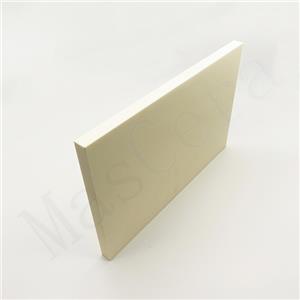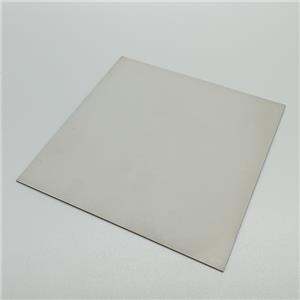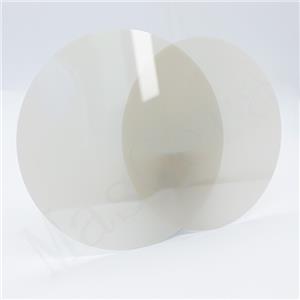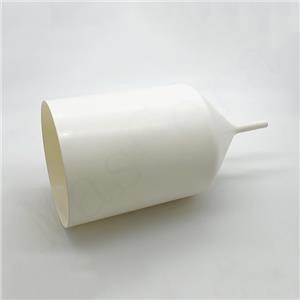Physical Properties of Technical Ceramic
Technical ceramic materials are widely adopted in industries such as electronics, energy, aerospace, automotive, and semiconductors due to their outstanding ceramic physical properties. Compared to metals and plastics, ceramics exhibit excellent high-temperature resistance, dimensional stability, and thermally controllable behavior. These qualities give ceramic components a significant advantage in demanding environments,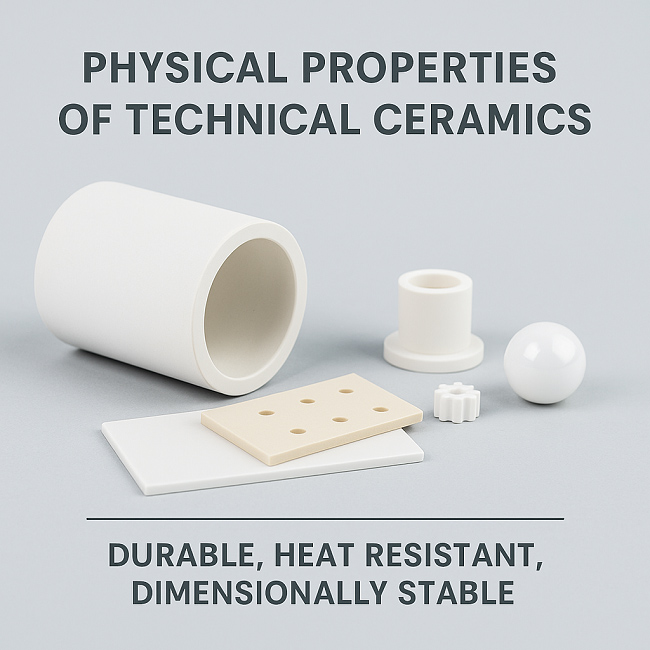 improving product reliability, minimizing failure rates, and extending operational life.
improving product reliability, minimizing failure rates, and extending operational life.
Different types of ceramics—based on their composition, crystal structure, and sintering process—demonstrate varying ceramic physical properties. Among them, three specific indicators are particularly critical in industrial applications and directly affect the performance, longevity, and manufacturability of technical ceramic materials: ceramic thermal expansion, thermal conductivity of ceramics, and ceramic density.
The Three Core Ceramic Physical Properties
1. Ceramic Thermal Expansion
Ceramic thermal expansion refers to the dimensional change of a material in response to temperature variation, typically measured in ×10⁻⁶/K. In components exposed to prolonged high temperatures or frequent thermal cycling, thermal expansion behavior significantly affects dimensional accuracy and structural reliability. Compared to metals or polymers, most technical ceramic materials exhibit much lower thermal expansion, maintaining high geometric stability even in extreme environments. This property is critical in applications involving thermal shock, ceramic-to-metal sealing, and multi-material assemblies.
2. Thermal Conductivity of Ceramics
The thermal conductivity of ceramics, measured in W/m·K, determines how efficiently heat flows through the material. Ceramic materials span a wide thermal conductivity range—from highly insulating zirconia (2–3 W/m·K) to highly conductive aluminum nitride (up to 200 W/m·K). Selecting ceramics with suitable thermal conductivity helps optimize heat dissipation, extend the service life of electronic components, and prevent thermal degradation. At Mascera, we supply high thermal conductivity ceramics tailored for thermal management in power electronics, LEDs, and IGBT modules.
3. Ceramic Density
Ceramic density, typically expressed in g/cm³, depends on the atomic weight and packing structure of ceramic materials. It affects:
• The weight of the component
• Mechanical strength
• Thermal inertia
• Compatibility with metals or polymers
Ceramic density also influences processing methods, sintering shrinkage, and design of mass and balance. It is a key parameter in evaluating the manufacturability of technical ceramic materials.
These three ceramic physical properties together define the fundamental characteristics of ceramics and serve as primary selection criteria for engineers during material evaluation. As performance requirements continue to rise in engineering design, understanding ceramic expansion, heat transfer, and density is crucial to building safer, more efficient, and more reliable systems.
Comparison of Ceramic Physical Properties by Material
Alumina (Al₂O₃)
Alumina is one of the most commonly used technical ceramic materials due to its excellent property balance and cost-efficiency. It offers moderate thermal conductivity of ceramics (20–30 W/m·K), low ceramic thermal expansion (~8 ×10⁻⁶/K), and relatively high ceramic density (≥3.65 g/cm³). These attributes make it ideal for high-temperature electrical insulation, structural supports, and thermal protection. Mascera supplies alumina ceramics in purities ranging from 95% to 99.8%, suitable for insulating tubes, thermocouple protection tubes, substrates, and wear-resistant parts.
Zirconia (ZrO₂)
Zirconia is known for its high ceramic density (~6.0 g/cm³) and thermal stability, and is one of the toughest ceramic materials available. It features low thermal conductivity of ceramics (2–3 W/m·K) and relatively high ceramic thermal expansion (~10 ×10⁻⁶/K). This makes it ideal for components requiring impact resistance and strength, such as valve parts, grinding media, and medical implants. Mascera offers stabilized zirconia with excellent surface finish and consistency for industrial and medical use.
Silicon Nitride (Si₃N₄)
Silicon nitride excels in thermal shock resistance, enabled by its low ceramic thermal expansion (~3–3.2 ×10⁻⁶/K), moderate thermal conductivity of ceramics (15–20 W/m·K), and lightweight ceramic density (~3.2 g/cm³). These features make it well-suited for applications demanding both strength and low weight, including engine parts, turbocharger rotors, and semiconductor handling tools. Mascera produces dense sintered silicon nitride components optimized for thermal cycling environments.
Boron Nitride (BN)
Boron nitride is a lightweight ceramic with excellent thermal stability and electrical insulation. It exhibits low ceramic thermal expansion (1–3 ×10⁻⁶/K), moderate to high thermal conductivity of ceramics (35–85 W/m·K, depending on grade), and very low ceramic density (1.6–2.3 g/cm³). This makes it ideal for molten metal handling, plasma systems, and electrical insulation. Mascera supplies hot-pressed BN ceramics customized for non-wetting, heat-resistant applications.
Silicon Carbide (SiC)
Silicon carbide combines high thermal conductivity of ceramics (90–110 W/m·K) with medium ceramic thermal expansion (~4 ×10⁻⁶/K) and low ceramic density (~3.1 g/cm³). This combination provides excellent heat transfer and dimensional stability, making it suitable for heat exchangers, kiln furniture, and seals in corrosive conditions. Mascera offers pressureless sintered SiC with excellent dimensional control and chemical resistance.
Aluminum Nitride (AlN)
Aluminum nitride features the highest thermal conductivity of ceramics (≥170 W/m·K), low ceramic thermal expansion (~4.7 ×10⁻⁶/K), and moderate ceramic density (~3.3 g/cm³). It is the preferred choice for high-performance thermal management in power electronics, LEDs, and IGBT cooling systems. Mascera produces high-purity AlN substrates and custom parts with superior thermal performance and electrical insulation.
With their distinct ceramic physical properties, technical ceramic materials are indispensable across high-tech industries. Whether it’s maintaining dimensional accuracy in high-temperature environments through low ceramic thermal expansion, achieving efficient heat dissipation via optimized thermal conductivity of ceramics, or reducing system weight with tailored ceramic density, ceramics offer the performance modern engineering demands.
Mascera provides expert guidance and complete solutions—from material selection to precision ceramic processing. A deep understanding of each material's physical properties is key to unlocking their full potential in industrial applications.

